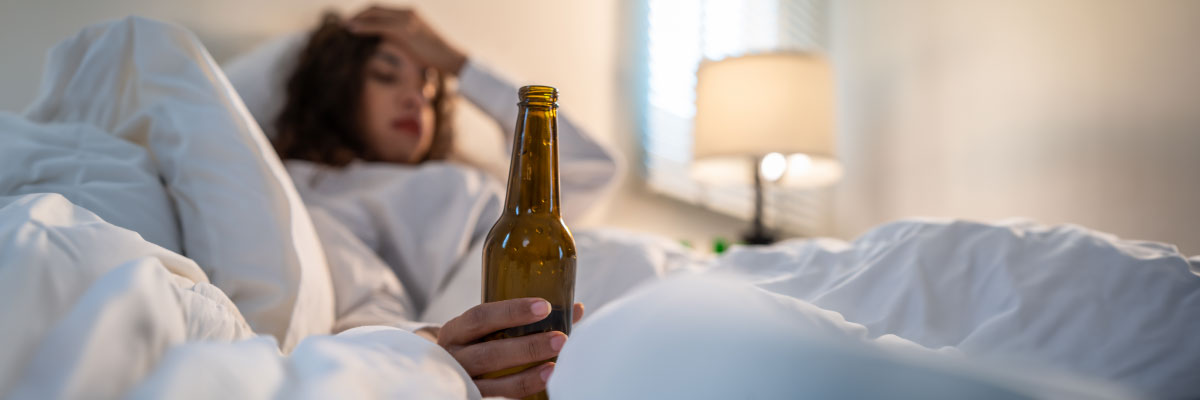Concussion and Alcohol
What is a Concussion?
A concussion is a type of brain injury that results from a bump, blow, or jolt to the head. This can cause the brain to move rapidly back and forth inside the skull, leading to chemical changes in the brain or damage to brain cells. Symptoms often include headaches, confusion, blurred vision, dizziness, and in some cases, a brief loss of consciousness.
Recovery Process
Recovering from a concussion involves a series of steps, beginning with a period of complete rest. This is crucial as it allows the brain to heal. Eventually, routine activities can be resumed under the supervision of a medical professional. The length of the recovery period can vary significantly from person to person, depending on the severity of the concussion and the individual’s overall health. It is important to strictly follow medical advice during this time to prevent the risk of further injury or complications.

Effects of Alcohol on Concussion Recovery
Alcohol consumption during the recovery phase can severely disrupt the healing process. Here is a detailed look at how alcohol interacts with a recovering brain:
- Alcohol disrupts the balance of neurotransmitters essential for brain cell repair after a concussion, potentially delaying the healing process and leading to longer recovery periods.
- Drinking alcohol can further exacerbate concussion-related sensitivity to light, causing further discomfort and complicating environments like brightly lit offices or sunny outdoor spaces.
- Consuming alcohol may worsen headache severity following a concussion, adding to the physical discomfort and hindering recovery efforts.
- Alcohol’s interference with the normal sleep cycle can prevent the brain from entering the deep, restorative stages of sleep needed to heal from neurological injuries.
- The depressive effects of alcohol on the central nervous system can severely impair cognitive functions, affecting abilities such as memory retention and problem-solving during the recovery phase.
Alcohol and Brain Health Post-Concussion
After suffering a concussion, the brain becomes especially vulnerable to the adverse effects of alcohol. Consuming alcohol during this critical recovery period can significantly slow down cognitive healing, affecting crucial functions such as memory and decision-making abilities. The depressive properties of alcohol slows the regenerative processes necessary for the brain to recover from the trauma it has experienced.
Moreover, there is an increased risk of seizures following a concussion, a risk that escalates further with alcohol consumption. Alcohol lowers the seizure threshold, making it easier for post-traumatic seizures to occur. This is particularly concerning for individuals recovering from brain injuries, as seizures can exacerbate existing brain damage and complicate the recovery trajectory.
Risks of Drinking with a Concussion
- Alcohol consumption during concussion recovery increases the risk of falls and secondary injuries due to impaired coordination and judgment, potentially leading to further brain damage.
- Drinking can worsen the cognitive impairments caused by concussions, making it more difficult to concentrate and process information effectively.
- The presence of alcohol in the system can slow the natural healing process of brain cells, resulting in prolonged recovery times from concussion symptoms.
- Alcohol use after a concussion might raise the likelihood of engaging in risky behaviors, further increasing the chance of accidents and new injuries.
- Introducing alcohol while the brain is still healing can impede the restoration of normal brain function, affecting the patient’s ability to return to work or school and perform daily activities efficiently.

Alcohol Tolerance and Sensitivity Change
If you have a concussion, you might notice that your usual tolerance for alcohol is not what it used to be. This is because concussions can alter the way your body reacts to alcohol, often reducing your tolerance significantly. You might feel the effects of alcohol more quickly and intensely, even if you have only had a small amount to drink. This change is part of a phenomenon known as reverse alcohol tolerance, where your body becomes more sensitive to alcohol’s effects after a brain injury. It is important to be aware of these changes as they can increase your risk of alcohol-related harm during your recovery period.
Guidelines for Alcohol Consumption After a Concussion
- Consult a Healthcare Professional: Before considering alcohol intake, it is important to consult with a healthcare provider who understands your specific medical history and the details of your concussion.
- Wait for Medical Clearance: Do not resume drinking until you have been medically cleared to do so. This might involve a follow-up appointment to assess your recovery progress.
- Gradual Reintroduction: If cleared to consume alcohol, reintroduce it slowly and monitor how your body and brain respond. This careful approach helps identify any negative reactions or setbacks in your recovery.
- Observe the Effects: Pay close attention to any changes in your symptoms or new issues that arise post-consumption. If negative effects are observed, discontinue alcohol use immediately and consult your healthcare provider.
- Follow Up Regularly: Continue to have regular check-ups with your healthcare provider throughout your recovery process to ensure that no complications arise from any lifestyle choices, including alcohol consumption.
Post-Concussion Syndrome and Alcohol
Post-concussion syndrome is when symptoms like headaches, confusion, and fatigue linger much longer than the typical recovery period after a concussion. It is a tough situation that can last for weeks, or even months, and drinking alcohol during this time can make these symptoms worse. Alcohol may slow down your recovery by keeping your brain from healing properly and can even make your symptoms feel more intense.
If you are dealing with post-concussion syndrome, the best approach is to avoid alcohol at all costs. Waiting until your symptoms have fully resolved before having a drink not only helps speed up your recovery but also prevents the possibility of further complications. It is important to talk to a doctor about when it might be safe to drink alcohol again. They can offer guidance based on how well you are recovering and any other health factors you might have.

Supporting Recovery: Services at Brazos Place
Brazos Place offers a supportive environment for anyone recovering from a concussion, especially those who need help managing alcohol use during this sensitive time. We offer Substance Abuse Prevention and Treatment services that can make a big difference. With counseling and practical treatment plans, we will help you understand the risks of drinking after an injury and find better ways to cope. It is all about making your recovery safer and supporting your overall well-being. Let us help you get back on track.
Making Informed Choices During Recovery
Making smart choices about alcohol during concussion recovery is crucial. Here are some practical tips and alternatives to help you navigate this period without relying on alcohol:
- Stay Informed: Understand how alcohol can affect your recovery. Talk to your doctor or healthcare provider about the risks and get personalized advice.
- Hydrate Differently: Swap alcoholic beverages for hydrating alternatives like water, herbal teas, or natural fruit juices that can help keep your body nourished and hydrated.
- Engage in Gentle Exercise: With your doctor’s approval, incorporate mild exercises like walking or yoga. These can boost your mood and aid in your physical recovery without the need for alcohol.
- Develop New Hobbies: Use this recovery time to pick up new hobbies that keep your mind engaged and distract you from the urge to drink. Reading, puzzles, or learning a musical instrument can be great options.
FAQs on Concussions and Alcohol Use
What happens if you drink alcohol after a concussion?
Drinking alcohol after a concussion can worsen your symptoms and delay your recovery. It can increase the likelihood of further brain injury and prolong the time it takes to heal.
How long should you wait after a concussion before drinking alcohol?
It is best to avoid alcohol until your healthcare provider says it is safe. This typically means waiting until all your symptoms have resolved, which can vary from a few weeks to a few months, depending on the severity of the concussion.
What should you avoid after a concussion?
After a concussion, you should avoid activities that could lead to another head injury, such as contact sports, physically demanding tasks, and situations where your cognitive functions could be challenged beyond comfort. It is also advisable to limit screen time and reduce exposure to loud noises and bright lights.
Can drinking alcohol cause a setback in concussion recovery?
Yes, consuming alcohol during the recovery phase of a concussion can cause setbacks. Alcohol interferes with the healing process, can exacerbate symptoms, and increases the risk of additional brain injuries.
What are the 3 stages of a concussion?
The three stages of a concussion are:
- Acute Stage: Immediately after the injury, symptoms like confusion, dizziness, and headaches are most prominent.
- Subacute Stage: Symptoms may continue but gradually start to improve as the brain heals.
- Recovery Stage: The final phase where symptoms typically resolve, though some patients may experience lingering effects known as post-concussion syndrome.
What alternatives to alcohol can help cope with stress during concussion recovery?
Alternatives to alcohol for managing stress during concussion recovery include engaging in light exercise as approved by a doctor, practicing mindfulness and relaxation techniques like meditation or yoga, and finding alternative ways to relieve stress such as drawing or writing.
What are the red flags of a concussion?
Red flags that indicate a serious condition following a concussion include worsening headaches, repeated vomiting, seizures, increasing confusion or irritability, inability to wake up, and significant changes in behavior. These symptoms require immediate medical attention.
Gender-Specific Rehabilitation Services
Ready to take control and make a change right now? Discover the only alcohol rehab center in Houston, TX that can really help you change your behavior and turn your life around. Know someone that needs help? Our integrated approach to alcohol rehab can help your loved one find peace and a new life! Give us a call: 1-855-862-3278
Admission Criteria:
- Adults 18 years of age or older
- Screened by staff
- Medically Stable
- Desires treatment
Additional Pages
- Gastric Bypass and Alcoholism
- What is Liquid G?
- GHB and Alcohol
- Addiction Treatment Programs
- Dry Drunk Syndrome
- Inpatient Rehabilitation Benefits
- Signs of Heart Damage From Drugs
- Addiction Stigma
- Medical Detox Treatment
- Substance Abuse Disorder
- What is Cocaine Jaw?
- Challenges of Addiction
- Drug Abuse Vs Drug Dependence
- Study Drugs Addiction






